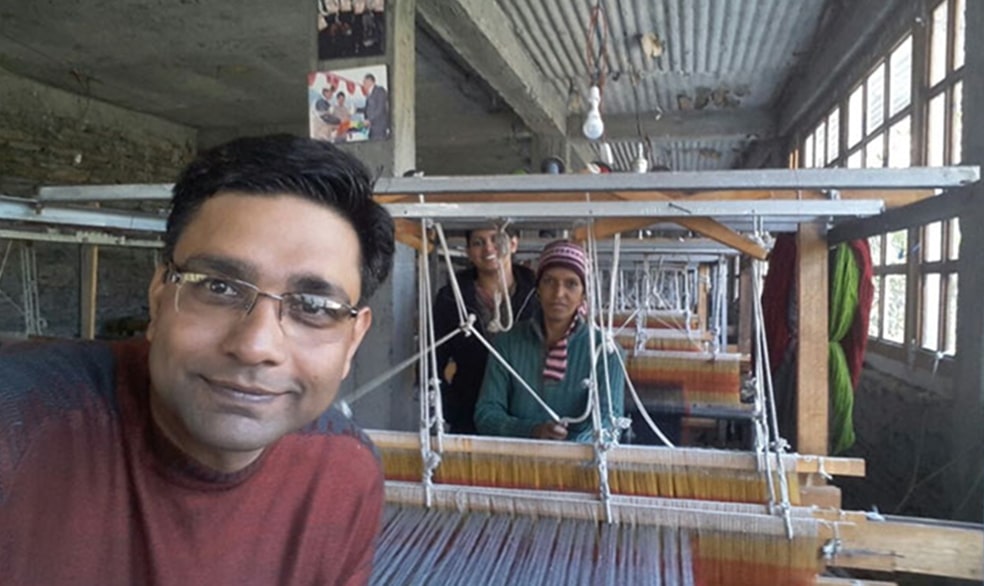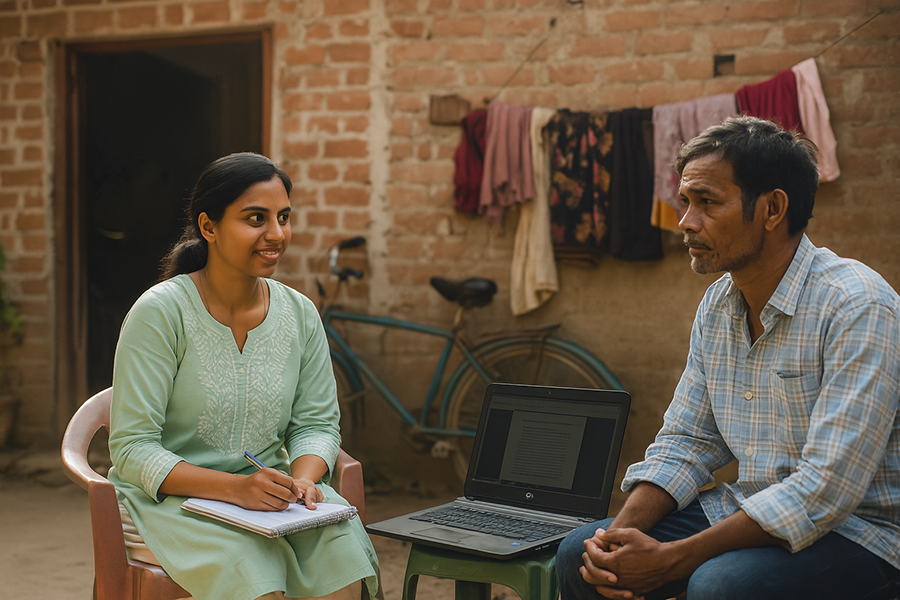In the words of Muhammad Yunus, the founder of Grameen Bank, “Human creativity is unlimited. It is the capacity of humans to make things happen which didn’t happen before. Creativity provides the key to solving our social and economic problems.” This statement encapsulates the essence of social entrepreneurship and its transformative impact on societies around the world, including India.
Traditional economics, which primarily focuses on growth, often has a myopic view of progress. It measures growth based on output, production, and consumption. This limited perspective fails to account for critical factors such as environmental degradation, pollution, and their consequences. Social entrepreneurship, however, seeks to redefine progress, introducing a broader perspective that considers the well-being of both people and the planet alongside profitability.
Rethinking Economics for a Sustainable Future
Kate Raworth, the author of “Doughnut Economics,” emphasizes the need to continuously adapt economic models to serve evolving human values, contexts, and goals. Social entrepreneurs are at the forefront of this paradigm shift, as they aim to merge transformative approaches to profit generation with innovative business models to address societal issues. This approach goes beyond mere problem-solving, adopting a holistic systemic view of economic and social change.
Understanding Social Entrepreneurship
The definition of social entrepreneurship has evolved over time, reflecting the dynamic nature of this field. Zahra et al. (2009) define social entrepreneurship as “the activities and processes undertaken to discover, define, and exploit opportunities in order to enhance social wealth by creating new ventures or managing existing organizations in an innovative manner.” Unlike conventional entrepreneurship, social entrepreneurship is deeply committed to creating lasting and positive societal changes.
Characteristics of Social Entrepreneurship
Social entrepreneurship is characterized by innovation, initiative, and the pursuit of opportunities that have a positive impact on social wealth. Whether through the creation of new ventures or the transformation of existing organizations, social entrepreneurs are driven by a mission to address pressing social issues.
Also Read: Emerging Trends in Social Entrepreneurship
Social Entrepreneurship as an Agent of Change
Social entrepreneurship is a powerful force for change, bridging the gap between profit-driven business and social impact. Governments and stakeholders are increasingly recognizing the potential of social entrepreneurs to drive positive change in society. Governments often face limitations in terms of funding and logistics, making the efforts of social entrepreneurs crucial in addressing complex social challenges.
Impact Areas of Social Entrepreneurship in India
Job Creation and Social Inclusion
Social entrepreneurship is making a significant impact on job creation and social inclusion. It addresses issues like gender inequality, physical disability, and racial discrimination by fostering a change in mindset. Organizations are actively integrating marginalized groups into the job market, promoting inclusivity and gradually shifting societal norms.
The Organization for Economic Co-operation and Development (OECD) acknowledges the role of social enterprises as intermediaries that bridge the gap between unemployment and the labor market. Several examples illustrate this positive change, with organizations employing disabled workers and promoting gender diversity in traditionally male-dominated industries.

Financial Inclusion and Microfinance
Financial inclusion is a pressing issue in many countries, particularly India, where a substantial portion of the population lives below the poverty line. Social entrepreneurs have addressed this challenge through microfinance, providing credit to those who lack collateral, financial literacy, or access to traditional loans. Organizations like Grameen Bank in Bangladesh and SKS Microfinance in India have played pivotal roles in uplifting the economically disadvantaged.
Addressing Climate Change
Climate change, a result of resource over-exploitation and environmental degradation, is a global crisis. Social entrepreneurs have taken a proactive role in tackling this issue by promoting sustainable practices, innovation, and collaboration. Examples such as Poonsap Suanmuang’s work in Thailand, which focuses on preserving nature through sustainable practices, demonstrate the potential of social entrepreneurship in mitigating climate change.

Healthcare Access
Healthcare access is a fundamental human right, yet billions of people lack affordable, quality healthcare. Governments often struggle to provide solutions due to financial constraints. Visionary social entrepreneurs, like Bill Gates through the Bill and Melinda Gates Foundation, have channeled their resources to address critical healthcare issues, such as HIV/AIDS and tuberculosis. However, a holistic approach to healthcare is necessary, emphasizing prevention over treatment.

The Urgent Need for Social Entrepreneurship
Social entrepreneurship is not a luxury; it is a necessity. Our collective future depends on adopting regenerative approaches to business and economics. The challenges we face today, from climate change to healthcare disparities, require immediate action. Social entrepreneurs are leading the charge, but they need support, especially from the younger generation.
The Role of the Youth in Social Entrepreneurship
The younger generation holds the key to a better future. Their enthusiasm, commitment, and innovative ideas can drive positive change. The entrepreneurs of tomorrow must strike a balance between profit and a mission to achieve global prosperity and harmony. By embracing social entrepreneurship, they can be the change agents the world desperately needs.

How ISDM is changing the landscape of social entrepreneurship?
The Indian School of Development Management (ISDM) offers a unique opportunity for individuals to advance their careers in the social sector. ISDM’s flagship Post Graduate Program in Development Management is tailored to the specific needs of this vital domain, blending the principles of business management with the challenges and opportunities of development projects.
In conclusion, social entrepreneurship is a powerful force that is reshaping how businesses and economies operate in India and around the world. With a focus on holistic progress, it addresses pressing societal issues and offers solutions that traditional economic models often overlook. The younger generation has a pivotal role to play in this movement, and institutions like ISDM are ready to equip them with the tools and knowledge needed to make a real impact in the social sector. By embracing social entrepreneurship, we can create a more inclusive, sustainable, and prosperous future for all.
FAQs
What is social entrepreneurship in India?
Social entrepreneurship in India involves creating innovative business models to address societal issues. It goes beyond conventional profit-focused entrepreneurship, aiming to bring about positive and lasting social change by addressing challenges like unemployment, poverty, and healthcare through sustainable and inclusive approaches.
What is the importance of social entrepreneurship in Indian society?
Social entrepreneurship is crucial in Indian society as it addresses pressing issues such as unemployment, poverty, and healthcare. By fostering innovation and inclusivity, social entrepreneurs contribute to the overall well-being of communities, bringing about positive change and sustainable development.
What is the role of social entrepreneurs in the economy?
Social entrepreneurs play a vital role in the economy by addressing social issues that traditional economic models often overlook.Their initiatives often lead to job creation, economic inclusion, and sustainable development.
How Social Entrepreneurship Benefits Society?
It addresses critical issues like job creation, financial inclusion, climate change, and healthcare. Initiatives driven by social entrepreneurs lead to positive social impact, empowering marginalized communities, fostering economic growth, and promoting sustainable practices for the well-being of both people and the planet.




